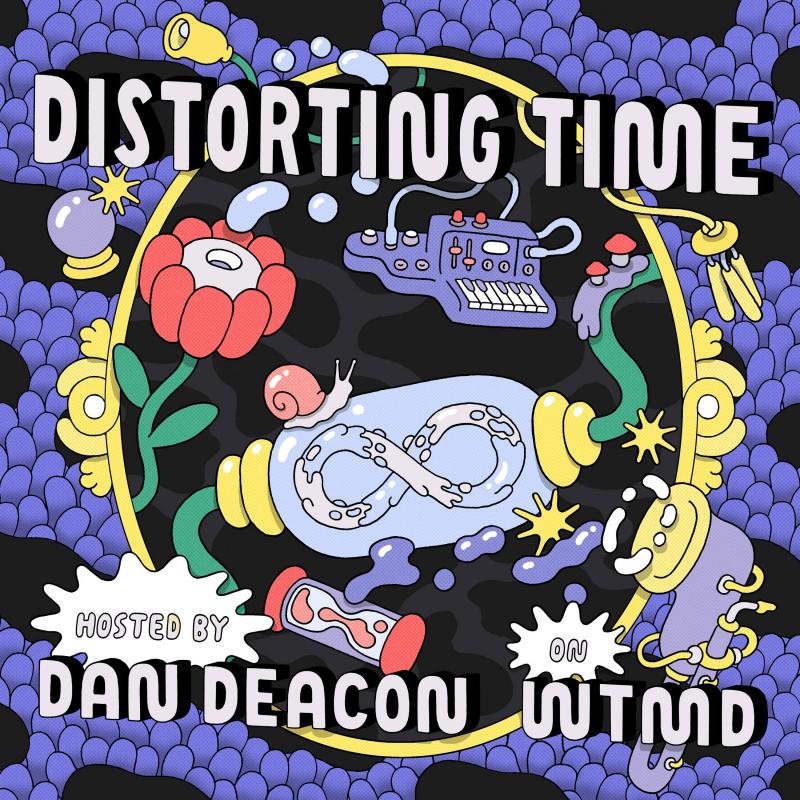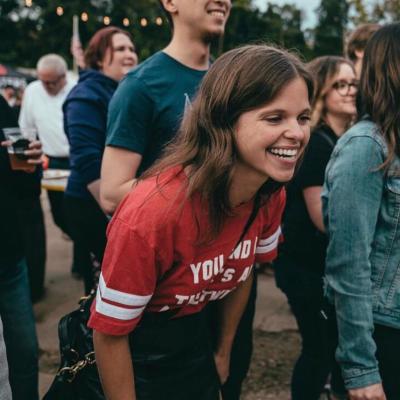
In Baltimore, we’ve known for years now that Dan Deacon is a multi-talented artist. In the early aughts, the local electronic musician helped put Baltimore on the map with his infectious, inventive dance music, and in the years that followed, he’s released several acclaimed albums, composed scores for award-winning films, and collaborated with major symphonies, including the Baltimore Symphony Orchestra. He can also now add another knack to his impressive resume—radio host—with the launch of his own weekly series on beloved indie station WTMD.
“This show brings out an entirely different side of Dan that most of his fans haven’t seen before, or perhaps have only caught glimpses of,” says Sam Sessa, Baltimore music coordinator at WTMD. “It’s like hanging out at his house and listening to his record collection. That’s one of the most exciting aspects: the way it challenges Dan, and the way his music challenges us as listeners.”
Launching at midnight on Friday February 19, Distorting Time will feature two hours of airtime dedicated entirely to unabridged long-form music—a natural theme for an artist who has spent his career pushing the boundaries of the sonic experience, as heard in the recent seven-minute track, “Bumble Bee Crown King” off his latest record, Mystic Familiar, or the 22-minute, five-piece suite “USA,” featured on 2012’s lauded America.
“So much media, especially radio, is optimized for time, to try to squeeze as many songs into a show as possible,” says Deacon. “This show is trying to do the exact opposite. I’m trying to play as few pieces of music as possible . . . I hope listeners find the show both helps pass the time and allows thoughts to linger in it.”
Deacon traces his love of long-form music back to childhood, when he would try to add all eight minutes of Led Zeppelin’s “Stairway to Heaven” or “Kashmir” into a homemade mixtape. He eventually studied musical composition in college, where he gravitated toward modern composers like Terry Riley, whose minimalist works sometimes exceed 20 or 40 minutes. “It all spiraled from there,” he says.
Distorting Time has been several years in the making, propelled into existence by the COVID-19 pandemic and its ongoing cancellation of concerts and tours. The title comes from the Oblique Strategies deck by Brian Eno, which Deacon uses as a creative tool—seeing this particular card, in relation to the show, as “a helpful reminder that time, or rather our perspective of time, is subject to fluctuation, and how certain things can elongate or expedite a moment,” he says.
“We’ve all dealt with the insanity of the past year in different ways,” says Sessa. “A show like this is one way for us to destress—just tune in and let your mind drift. Distorting Time is a life raft in a sea of doom scrolling and other distractions.”
The after-hours show will air on Friday nights into Saturday mornings, from 12 to 2 a.m., featuring “longer-than-song songs,” as Deacon puts them, like American jazz pianist Herbie Hancock’s 1973 “Rain Dance” or German futurist folk artist Lyra Pramuk’s 2020 “Cradle.”
“I love being on tour and driving late at night and stumbling on a great station playing odd sounds and listening to it until the signal turns to static,” says Deacon of late-night radio. “Knowing that it’s literally moving through the air, covering the mostly slumbering surroundings but finding its way into the receivers of both folks tuning in with intention, as well as those that are just cruising the dial, it’s just a distinctive mythical beast as far as music-listening goes.”
Tune in live via 89.7 FM or the free WTMD app.
